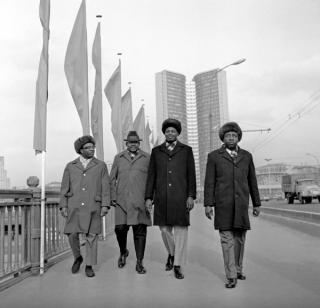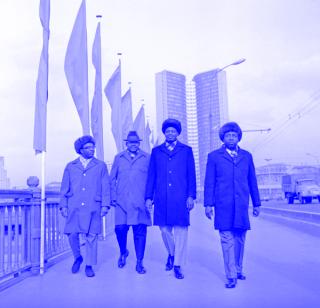SFB Subproject
Economic Relations Between Eastern Europe and the »Third World«

SFB 1199 »Processes of Spatialisation under the Global Condition« ccomprises researchers with different disciplinary backgrounds from the University of Leipzig, the Leibniz-Institute for Regional Geography (IfL) Leipzig, the Technische Universität Dresden and the GWZO exploring what effects shifting and increasing global entanglements are having on the perception and design, hierarchies and competitions of widely differing spatial formats. The reconstruction of imagined and the analysis of realised regionalisms and nation states, supply chains and infrastructure projects show that the »globalisation« actually was and is the product of the globalisation projects of diverse actors and social groups.

Launched in 2016, the SFB started a second funding period after a successful evaluation in 2020. The subproject B03, led by Frank Hadler, Uwe Müller and Stefan Troebst at the GWZO, once again examines the economic relations between the socialist countries of Eastern Europe and the states of the »Global South« that developed as part of decolonisation during the Cold War. After Anne-Kristin Hartmetz, Bence Kocsev and Jan Zofka created case studies on Ghana’s relations to the Soviet Union, the efforts to create a new international economic order (NIEO) and the cotton trade between the »Second« and »Third World« in the first project phase, the focus now lies on socialist development models for the »Third World«.
Max Trecker examines how socialist foreign trade theory and policy changed under the influence of the Comecon states’ intensifying economic entanglements with the »globalisation« and the Global South in the 1960s and 1970s.
Aurelia Ohlendorf uses the example of Soviet dam construction in different Asian and African countries to analyse how projects central to development policy were planned and executed, as well as adapted to varying regional and shifting global parameters.
Both sub-studies centre on transnationally operating actors from eastern Europe, although they also examine how the experiences gathered in the »Third World« impacted the perception and configuration of the socialist development path in their own countries.



